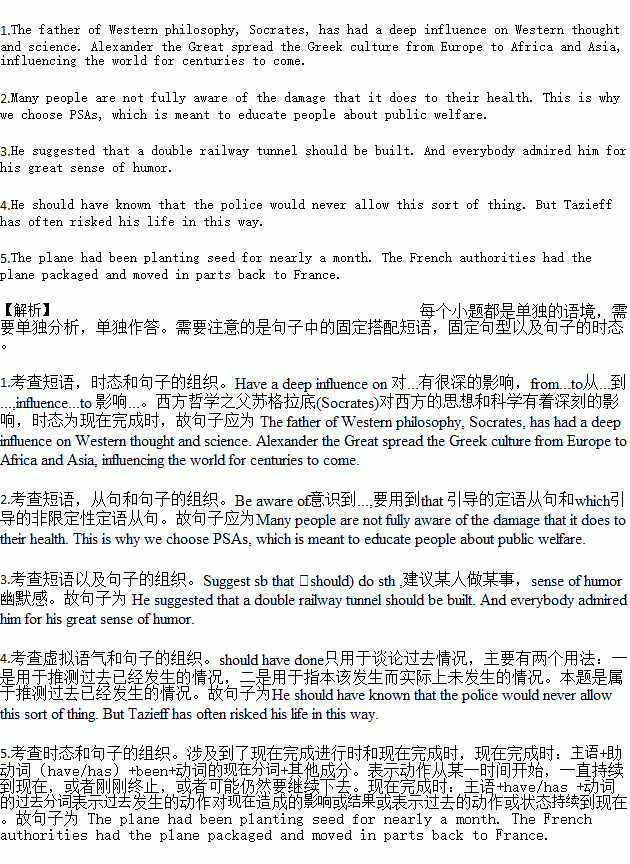题目内容
1.西方哲学之父苏格拉底(Socrates)对西方的思想和科学有着深刻的影响。而亚历山大大帝(Alexander the Great) 将希腊文化从欧洲传到了非洲和亚洲,在此后的数个世纪中影响了整个世界。
2.很多人没有充分认识到吸烟对健康造成的伤害。这就是为什么我们选择公益广告--旨在就有关公共福利而教育人们.
3.他提议建一条双轨隧道。人人都钦佩他绝妙的幽默感。
4.他本该知道警察绝不会允许这类事情发生。但是Tazieff 经常冒这样的生命危险。
5.飞机撒播了近一个月的种子。法国政府让人把它包装起来,一部分一部分地搬回法国。
练习册系列答案
 天天向上一本好卷系列答案
天天向上一本好卷系列答案 小学生10分钟应用题系列答案
小学生10分钟应用题系列答案
相关题目

